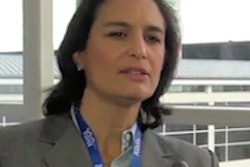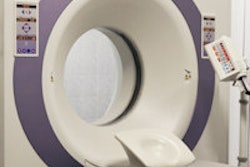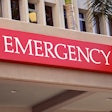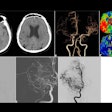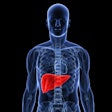CT lung cancer screening is cost-effective in the Medicare-aged population, concludes a new study published in American Health and Drug Benefits that was tailored specifically to older individuals undergoing lung cancer screening with CT. Proponents of the exam hope it will add impetus to efforts to win Medicare reimbursement.
The researchers found that implementing the U.S. Preventive Services Task Force (USPSTF) recommendations for low-dose CT lung cancer screening in high-risk Medicare-aged individuals was highly cost-effective, coming in at less than $20,000 per life-year saved -- lower than the costs associated with cervical and breast cancer screening and comparable to colorectal cancer screening.
Study authors included Bruce Pyenson, of actuarial firm Milliman, and Dr. Claudia Henschke, PhD, from Mount Sinai Hospital (Am Health Drug Benefits, August 2014, Vol. 7:5, pp. 272-282).
Using Medicare patient data, the group determined that 4.9 million Medicare beneficiaries ages 55 to 80 would be eligible for screening this year, using the USPSTF guidelines. If all 4.9 million had been screened and treated consistently beginning at age 55, approximately 358,000 additional individuals with current or prior lung cancer would be alive today. The authors estimated that the total cost of a life-year saved is $18,452.
"Screening results in an additional life expectancy of approximately four years for patients incremental to the life expectancy without screening, and with a greater improvement for younger patients," they wrote.
Costs for women were a little lower, because women with late-stage lung cancer lose more life expectancy than do men, the group noted. This means systematic screening and treatment can save relatively more life-years for high-risk women than men, bringing the cost of a life-year saved to $15,085 for women, compared with $22,415 for men.
The authors estimated the average annual cost of lung cancer screening to be $241 per person screened, assuming that 75% of the screenings were repeat rounds. The results are in line with a 2012 study, also by Pyenson et al, in Health Affairs that found CT lung cancer screening to be cost-effective in individuals with commercial insurance.
A broad swath of organizations -- including the American College of Radiology (ACR), the Lung Cancer Alliance, the Medical Imaging and Technology Alliance (MITA), and the Society of Thoracic Surgeons -- have all leapt to endorse the findings, urging Medicare to adopt lung cancer screening without delay.
"CT lung cancer screening is cost-effective and significantly reduces lung cancer deaths," said Dr. Ella Kazerooni, a professor of radiology at the University of Michigan and chair of the ACR's lung cancer screening committee, in a statement. "Published results show no undue or lasting patient anxiety from the screening process. It is time for Medicare to cover CT lung cancer screening."
Given the complexity of the modeling and analysis, how was it that screening and follow-up costs could have come in so low? "I think it is because it targets a high-risk population by age and smoking history, while mammography screening targets all women over a wide age range," Kazerooni wrote in an email to AuntMinnie.com.
Study disclosures
The study was funded by the Early Diagnosis and Treatment Research Foundation, whose main source for this project was a grant from MITA, a division of the National Electrical Manufacturers Association.






